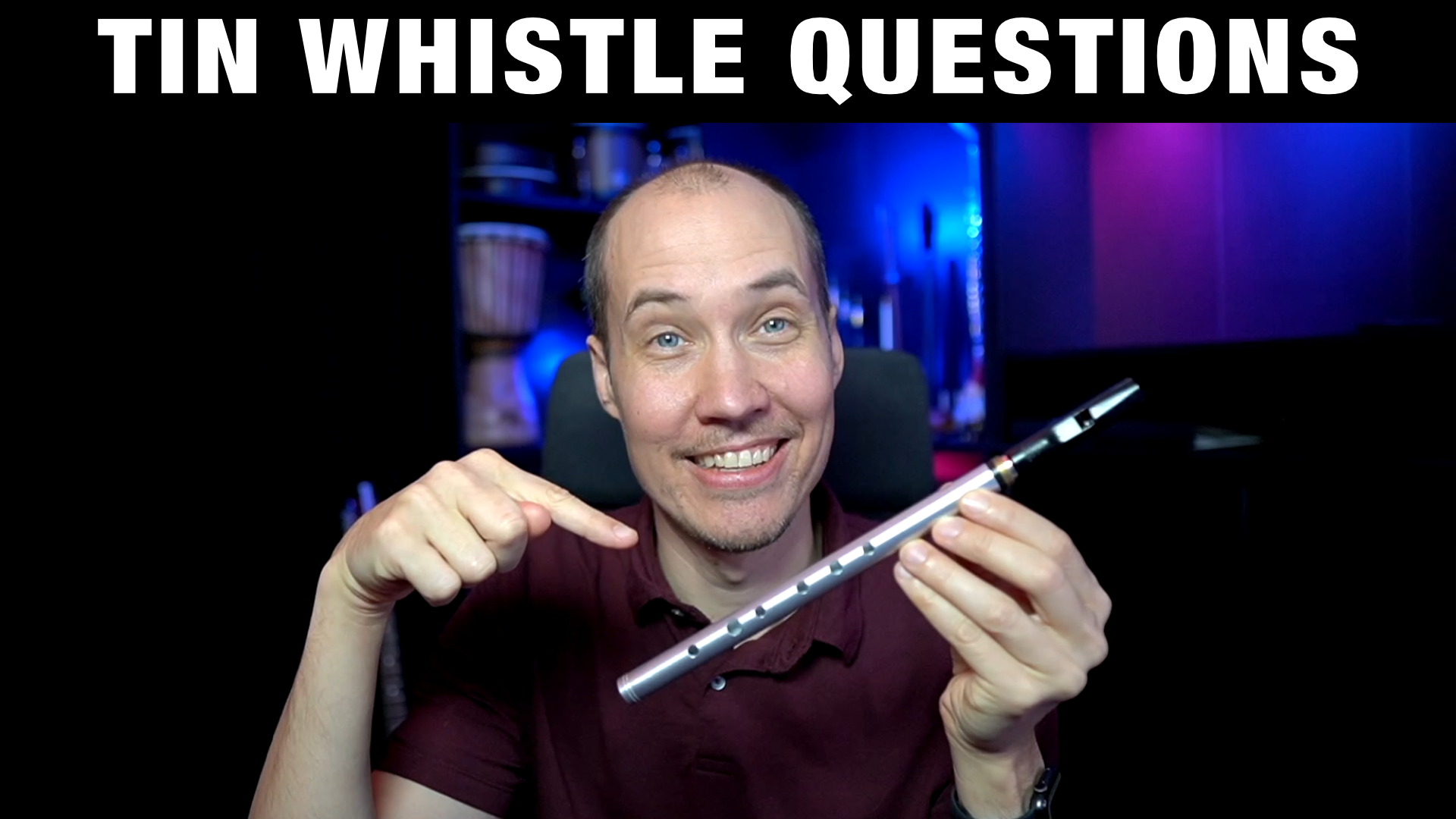 What is a Tin Whistle?
What is a Tin Whistle?
The tin whistle is a small flute with a fipple design (mouth-piece) that works in the same way a recorder does. It is a very common instrument in traditional Irish music.
It is most often made of metal, has 6 tone holes, and is designed to be played diatonically, which means 7 notes of a specific key. The most common tin whistle is in D (D Major).
Is it Hard to Learn the Tin Whistle?
No, in fact is one of the easiest music instruments you can learn. Fingering is easy since it is a diatonic instrument, and only has 6 tone holes.
Playing the 2nd octave only requires you to blow harder, but the fingerings pretty much stay exactly the same as the 1st octave.
The main struggle for beginners will be breath control, since you need to blow extremely lightly for the lowest notes, and with much more force in the highest notes of the 2nd octave.
Of course, learning to play the tin whistle well, with expression and emotion and all techniques to get there, will take a longer time…just like any music instrument.
But overall, learning the basics and getting started playing tunes on your tin whistle is pretty easy.
How many Holes does a Tin Whistle have?
A tin whistle have 6 tone holes (the ones you play notes with), and no thumb hole. This makes it easy to play the 7 notes of the diatonic key the tin whistle is made for. 6 tone holes + leaving all holes open for the 7th note.
A tin whistle is therefore much easier to learn than for example a flute, or a recorder, which have many more holes and fingerings to learn.
What Key is a Tin Whistle in?
The most common key by far is the key of D (D Major). Even with low whistles, the key of D is the most common (1 octave lower than the standard high D tin whistle).
However, being a diatonic instrument, over the years makers have been producing tin whistles and low whistles in all 12 keys of music. So you can find anything from common keys like G and A, to unusual keys like Eb, Ab etc.
In fact, most professional tin whistle players have a set of tin whistles, so that they can choose which one to use for every song or tune they play along to in bands etc.
Can you play Chromatic Notes on the Tin Whistle
In short: yes you can, but it is extremely difficult. This is because the tin whistle only have 6 tone holes, and while you can do 2 common cross-fingerings to access 2 more notes, for the rest you need to do something called “half-holing”.
Half-holing is a very difficult technique, which essentially means that you need to shade one of the tone holes (sometimes more) in order to get the note in between the fully covered hole and the fully open hole.
Also, half-holing on some holes (especially the lowest one) will often sound weak, fragile and even failing to produce a clean note at all.
The Best Beginner Tin Whistles
As a beginner you want to start out on the “easiest” tin whistle. There are two aspects that will heavily affect your learning.
One: playing on a bad quality instrument will make you suffer and become so frustrated that you might quit. I would avoid the super cheap tin whistles, as they can be out of tune one some notes, squeak more easily, be unplayable in the highest 2nd octave notes etc.
Two: you want to play on a tin whistle that suits your kind of playing. Some tin whistles require more air, some less air. Some have bigger tone holes, some have smaller. Some have a bigger bore (thickness of the tube), some have a narrow bore. Generally you want to start out on a balanced tin whistle, somewhere in between on all these aspects.
Also, I highly recommend that you get a tuneable tin whistle, which means that you can push or pull the head-joint in or out to adjust the overall tuning.
Tuning will always be affected by temparature in the room, humidity etc. so being able to tune your instrument is important if you want to play along with other musicians, or on top of a backing track.
Most tin whistlers end up buying many tin whistles, and some even end up with a big collection. Since all tin whistles have a different tonal character, and feeling and response when you play them.
Here are a couple of brands you can try out as as beginner, which are great quality instruments, and fairly balanced in the aspects I mentioned above are: Wild Whistles, Lir, Tony Dixon.
